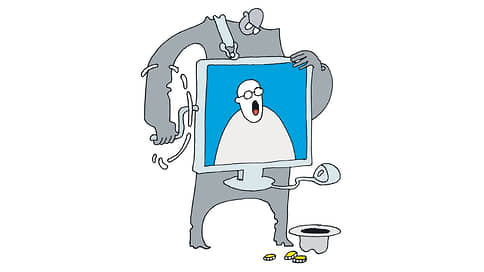The track is stuck on loading – Newspaper Kommersant No. 21 (7466) dated 02/06/2023
[ad_1]

As a result of the withdrawal from Russia of large foreign platforms – Spotify, Apple Music and YouTube Music – in 2022, the music streaming market showed a decline for the first time: according to analysts and distributors, it decreased by 30-50%, to 7 billion rubles. At the same time, domestic services report an increase in the audience that has switched from Western platforms, but a significant part of new subscribers still use free trial periods. The fall in the market has also affected the income of artists, experts specify: the cost of one listening has decreased, and the remaining labels offer less profitable contracts.
The Russian music streaming market in 2022 showed a decline for the first time in the history of observations. According to InterMedia, the decline was 30-50%, to about 5-7 billion rubles. In 2021, the agency estimated the market at RUB 9.5 billion. “The main reasons for the decline are the departure or reduction in the activity of leading streaming services, major companies, payment systems, the departure of a significant number of active users from the country,” says Evgeny Safronov, Editor-in-Chief of InterMedia. He also notes that domestic platforms operate according to an ecosystem model, in which income from streaming is not separately allocated.
The source of Kommersant in one of the major digital music distributors agrees with InterMedia’s assessments: “Deezer, which was in a niche segment.” A number of users from the Russian Federation continued to use foreign services, but it became much more difficult, he says. Some users have switched to domestic services, but not everyone pays for a subscription, the source of Kommersant clarifies: “People often use free trial periods and switch from one service to another. Demand for domestic streaming is also affected by the loss of part of foreign catalogs.”
With the start of the departure of foreign services, the dynamics of the market really deteriorated, says Nikita Danilov, CEO of the National Federation of the Music Industry: “But it is important that previously released music catalogs remain available to consumers. And Russian artists have the opportunity to monetize content on foreign services.” Russian platforms have stepped up campaigns to attract listeners and there is a steady monthly increase in the number of plays, says Andrey Volyanik, founder of distributor Multiza: “But the profitability from one listening is significantly reduced, due to a decrease in the average cost of a subscription, free promo periods and promotions.”
However, not all market participants agree with InterMedia. According to the head of MTS Music, Maxim Petrovsky, the market grew by 20%: “Those who are used to paying for a subscription continued to do so under the new conditions.” At the same time, he agrees that the departure of foreign players has led to a decrease in the average cost per audition. Yandex Music says that at the end of the third quarter of 2022, the number of Yandex Plus subscribers reached 15.8 million (an increase of 53%): “The majority of them regularly use Yandex Music, and in 2022 this number is noticeable has grown.” The Sound service (part of Sber’s Prime subscription) noted that the service’s audience grew by 30% in 2022: “The share of subscribers with a trial period ranges from 5% to 15%.” With the departure of foreign streaming, Russian online music has become even more integrated into super-subscriptions, the service noted: “Purchasing a separate subscription to music is now a rarity.” In “VK Music” “Kommersant” did not answer.
The downturn in the market also affected the income of Russian artists, a Kommersant source in the industry notes: “The main funds were brought in by Apple Music due to higher subscription prices and global coverage, and YouTube in general due to the monetization of music in videos.” Prices for catalogs have also decreased, says Nadezhda Boychevsky, director of digital distribution and label services at MTS: “With the departure of streaming, the number of promotional instruments has decreased, which delays the payback and increases the terms of contracts, which artists cannot like.” Because of this, there has been a strategy of approaching advances with more risk assessment on both sides, she says: “Big artists with established catalogs containing absolute hits are holding their ground, but it has become more difficult for intermediate or beginners to get advances on adequate terms.”
The biggest advances to Russian artists could be paid by majors, Evgeny Safronov explains: “They could pay 5 million rubles for an album. and higher. After the departure of the international giants, such advances have become a rarity.” But at the same time, he notes, new labels are entering the market that will be willing to pay new artists. For example, VK, MTS, as well as the Rikki Group, which owns the rights to the Smeshariki and Fixiki cartoons, have launched their own music labels.
[ad_2]
Source link





